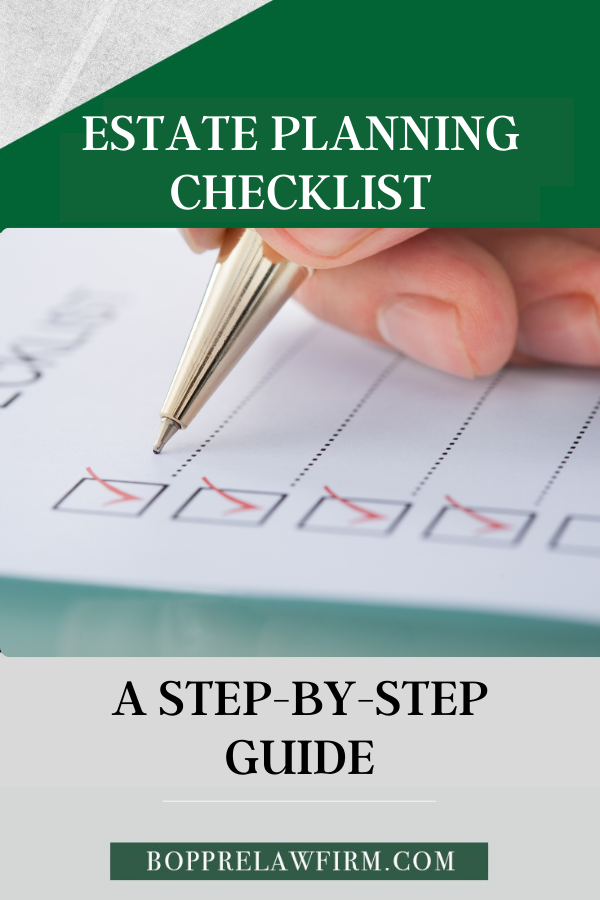Estate Planning Checklist: A Step-By-Step Guide
ESTATE PLANNING CHECKLIST: A STEP-BY-STEP GUIDE
The unpredictability of life makes estate planning a crucial undertaking, irrespective of where you are in life. The mere thought of estate planning can be daunting, given the myriad of decisions to make. As legal professionals, we’re here to streamline this process for you. A checklist can be your starting point. Here’s a primer on the foundational documents and steps in estate planning.
1. LAST WILL AND TESTAMENT
This document lets you dictate the distribution of your estate upon your passing.
Through it:
Appoint a Personal Representative to execute your wishes
Choose guardians for minor children.
Specify gifts or legacies.
Include or exclude specific individuals.
2. HANDWRITTEN GIFT LIST
An extension of your will, this list provides granular details about personal belongings and their intended receipts. By signing and dating, this list becomes a legally recognized part of your will.
3. POWER OF ATTORNEY
A pivotal estate planning tool, this document has several variations:
Durable: Appoints someone to represent you when mentally incapacitated.
Limited: Allows assignment of specific duties while you’re cognizant.
General Durable: Grants broad authority before and post incapacitation.
4. ADVANCE HEALTH CARE DIRECTIVE
Specify your healthcare wishes in case you can’t decide for yourself. Appoint individuals to ensure your wishes are honored, relieving your loved ones from making potentially agonizing decisions.
5. TRUSTS
Trusts give you control over your wealth and ensure privacy. Discuss with legal experts to find the right trust tailored to your needs. Here are a few common ones:
Revocable Trust: Can be changed or nullified by the trustor, aiding in hassle-free estate transitions.
Irrevocable Trust: Set in stone, unless altered by a court. Effective for tax and creditor protection.
Testamentary Trust: Incorporated in your Last Will, ideal for special beneficiaries like minors or individuals with disabilities.
6. DEEDS
Vital to estate planning, deeds transfer ownership. Noteworthy types include:
Life Estate Deed: Gives grantees rights for their lifetime. Upon the grantor’s death, ownership transitions to the intended recipient.
Transfer on Death Deed: Grants property ownership to a designee upon the grantor’s demise but keeps it intact until then.
SAFEKEEPING YOUR DOCUMENTS
Ensure your documents are stored securely yet are easily accessible, like in a safety deposit box or fireproof safe. Providing copies to trusted individuals is also advisable.
GETTING STARTED
Recognizing the importance of an estate plan is half the battle. At Boppre Law Firm, we aim to make the process seamless. Our comprehensive estate planning intake form coupled with a list of pivotal documents ensures that your initial consultation is productive.
To embark on your estate planning journey, reach out to us at 701-852-5224. Let’s secure peace of mind for both you and your loved ones.

